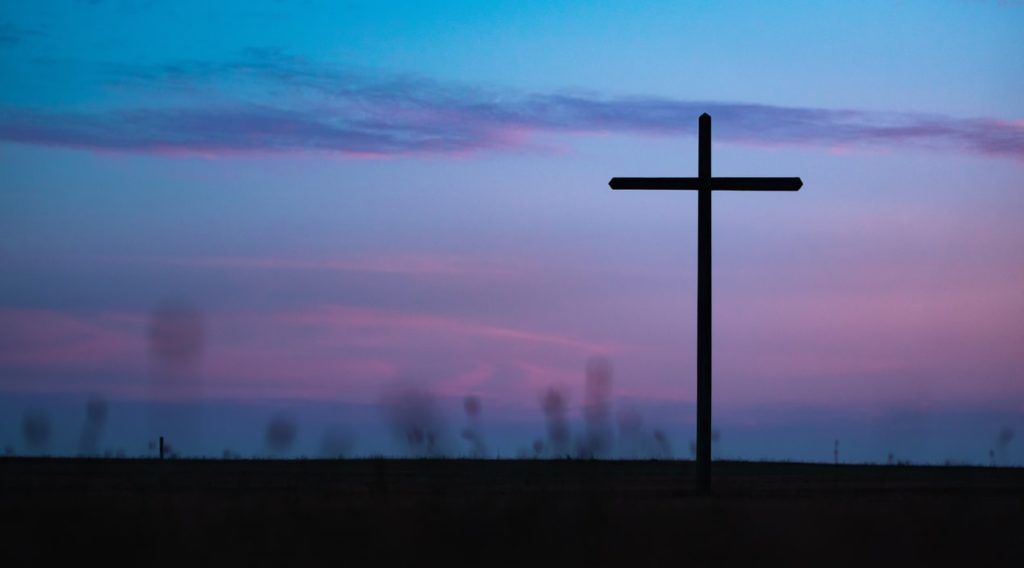
By Robert Gonzales Jr.
A careful reading of Luke 22:14-20 reveals that the Lord’s Supper is closely associated with an OT Jewish feast called “Passover.” This fact underscores an important truth: Christianity is not at odds with the religion of the Old Testament. Rather, it’s the fulfillment of OT religion. That’s why Jesus appends the Lord’s Supper to the Passover. Not surprisingly, the apostle Paul actually refers to Jesus as “our Passover lamb” (1 Cor. 5:7). The implication is that if we want to understand and appreciate what Jesus did for us on the cross and what the Lord’s Supper symbolizes, we need to understand and appreciate the OT Passover.
The OT Passover
Exodus 12 provides a commentary on the institution and rationale of the Passover. Moses commands the Israelites to slay a lamb and spread its blood on the doorposts of each Israelite home (12:21-22). The reason is specified in verse 23:
For the LORD will pass through to strike the Egyptians, and when he sees the blood on the lintel and on the two doorposts, the LORD will pass over [פסח; pasah] the door and will not allow the destroyer to enter your houses to strike you.
Indeed, every time the Israelites commemorate the Exodus event with the Passover feast (12:24-26), they’re to remind their children of its significance: “It is the sacrifice of the LORD’s Passover [פסח; pesah], for he passed over [פסח; pasah] the houses of the people of Israel in Egypt, when he struck the Egyptians but spared our houses” (12:27).
The Meaning of “Passover”?
The impression of most English translations is that of God’s seeing the lamb’s blood smeared on the doorpost of the Israelite’s home and, as a result, of his bypassing that home, i.e., withholding judgment and extending mercy. There’s certainly an element of truth in that picture. However, the Hebrew verb translated “pass over” is used elsewhere in the OT to convey a different concept.
“Hovering Over Jerusalem”
In Isaiah 31:5, for instance, the prophet assures God’s people that if they put their trust in the Lord, the Lord will protect them:
Like birds hovering overhead,
The LORD Almighty will shield Jerusalem;
He will shield it and deliver it,
He will pass over [פסח; pasah] it and will rescue it (NIV).
In this verse, the Hebrew verb translated “pass over” (פסח) is parallel with the verbs translated “to shield” and with the imagery of birds hovering overhead. The picture conveyed is not that of God simply passing Jerusalem by. Rather, the picture is that of God hovering over Jerusalem in order to shield her from judgment.
“Hovering Between Two Branches”
The verb is also used in 1 Kings 18:21 where the prophet Elijah addresses the people of Israel after he had defeated the prophets of Baal on Mt. Carmel. According to the traditional rendering:
And Elijah came unto all the people, and said, How long halt ye [Heb. Pasah] between two opinions? If the LORD be God, follow him: but if Baal, then follow him. And the people answered him not a word (KJV).
The ESV updates the archaic sense of “halt” and renders the text: “How long will you go limping between two different opinions?”
However, a better reading sees the prophet employing an avian metaphor similar to the one in Isaiah 31. We should read Elijah’s rhetorical question as follows, “How long will you hover between two branches?” The metaphor is that of a bird that won’t make up its mind which branch to land on.
Yahweh Hovers to Shield
Now let’s apply what we’ve learned about the verb פסח (pasah) in these passages to Exodus 12. Here’s how I suggest we should read Exodus 12:23:
For the Lord will pass through to strike the Egyptians, and when he sees the blood on the lintel and on the two doorposts, the Lord will hover over to shield the door and will not allow the destroyer to enter your houses to strike you.
The picture is not simply one of God passing by the homes of the Israelites. Instead, the picture is that of God placing himself between the Israelites and the destroying angel in order to shield the Israelites from judgment. This understanding of the Hebrew terminology has led one Bible scholar to suggest that we speak not of God’s “Passover Feast” but of God’s “Cover-over Feast.”[1]
Christ Our “Cover-over” Lamb
What implications does this have for our view of Christ as the “Passover lamb” and our understanding of the Lord’s Supper? I would suggest that when Jesus hung on the cross, it wasn’t merely a picture of a lamb being slaughtered and its bloodshed. When Jesus hung on the cross, suspended between heaven and earth, he was acting as a human shield, standing between us and between the wrath of God.
Hallelujah, what a Savior!
Dr. Robert R. Gonzales Jr., Ph.D, has served as a pastor of four Reformed Baptist congregations and has been the Academic Dean and a professor of RBS since 2005. He is the author of Where Sin Abounds: the Spread of Sin and the Curse in Genesis with Special Focus on the Patriarchal Narratives (Wipf & Stock, 2010) and has contributed to the Reformed Baptist Theological Review, The Founders Journal, and Westminster Theological Journal. Dr Gonzales is a member of the Evangelical Theological Society. He and his wife, Becky, reside in Sacramento, California. (from rbseminary.org)
[1] Meredith Kline, “The Feast of Cover-over,” Journal of the Evangelical Theological Society 37:4 (Dec 1994): 497-510.
The corporation shall not discriminate against applicants, employees, students, volunteers, and others on the basis of race, color, nationality, or ethnic origin; however, as a religious institution, the corporation reserves the right to deny or terminate employment or to deny or terminate any other status of persons whose lifestyle, words, actions or otherwise do not align with the corporation’s Statement of Faith, standard of conduct, or other policies of this organization.
